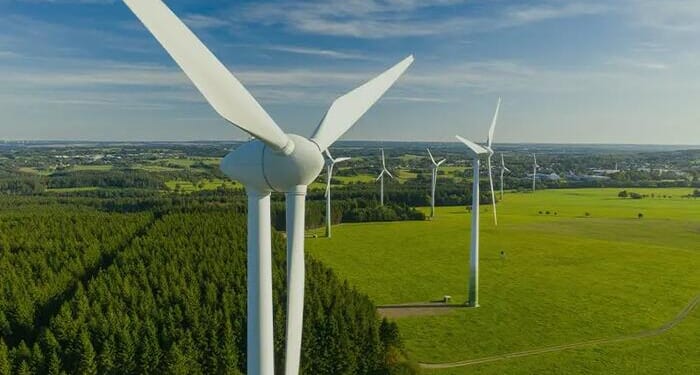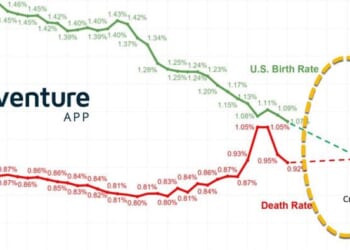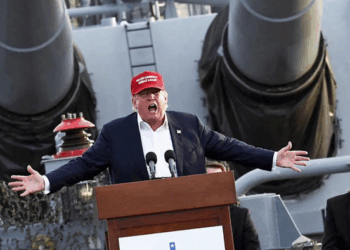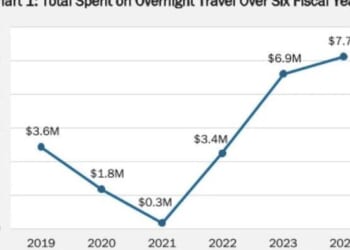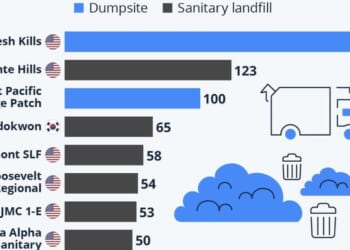Submitted by Thomas Kolbe
On Thursday, German Chancellor Friedrich Merz hosted top executives from the German steel industry at a summit in the the Chancellery to discuss solutions to the deepening crisis. Since the peak year of 2018, German steel production has fallen by around 25 percent.
Germany’s economic crisis is accelerating. Sky-high energy costs, relentless competition from China and India, and the EU’s absurd push for “green steel”—a climate-neutral variant no one demands on the world market—are pushing companies either into insolvency or out of the country.
Thursday’s meeting will bring together industry representatives, unions, and policymakers to chart the next steps for a sector facing its most severe turbulence in decades.
This is just the latest in a string of crisis summits orchestrated by the federal government for media effect. Awareness is demonstrated—solutions? Not so much. For Germany’s economy, political “solutions” increasingly mean one standard instrument: more subsidies.
A One-Issue Summit
Aside from the expected push for protective tariffs, the summit can be reduced to a single dispute: the so-called industrial electricity price. While many energy-intensive companies already receive partial relief, it is far from enough to remain internationally competitive.
Industrial electricity prices have hovered around 16–17 ct/kWh for months. German industry still pays up to 70 percent more than U.S. or French competitors, who benefit from nuclear power as their energy base.
This is the cost of the green transition.
And with it come job losses, shrinking value creation, and, for the first time, sharply declining municipal tax revenues.
Unsurprisingly, the federal government is ready to approve this subsidy. We are deep in a spiral of interventionism.
Costs Unclear
Economics Minister Katerina Reiche did not provide a specific budget but indicated that state electricity subsidies for energy-intensive industries—from chemicals to steel to paper—could start on January 1, 2026.
The German Economic Institute (IW) estimates the scaled-back industrial power scheme at around €4 billion per year. Two years ago, a parliamentary expert hearing even mentioned €50 billion. Realistically, the final cost will likely land in the low double-digit billions.
As always, taxpayers will foot the bill—either directly through higher levies or indirectly via debt-financed programs, whose costs are offset by inflation.
In truth, the summit is all about subsidies. Were it not for the European Commission, which—surprisingly—is still blocking the plan, insisting on strict state-aid limits: no more than 50 percent of energy consumption and only for three years. Why the Commission blocks here is unclear. But it is the biggest hurdle for this new multibillion-euro subsidy.
Green Deal Fails
The frequency of summits is telling. Germany’s transition to a climate-neutral economy has already failed. Reality refuses to bend to Brussels’ Green Deal diktat.
Meanwhile, thousands of self-appointed climate ideologues gather at COP30 in Brazil, as criticism of Brussels’ climate and regulatory policies grows loud.
German industry sees laws like the so-called Supply Chain Act—as a gateway to full regulatory control along entire value chains—as a major obstacle. Even agreeing on a seemingly competitive industrial power price cannot hide the Kafkaesque bureaucracy from Berlin and Brussels.
In the past three years alone, German companies had to create 325,000 additional positions—not for production, innovation, or export, but solely to meet ever-growing bureaucratic demands. Absurd. Anti-economic. Destructive.
Harbinger of Failure
Now the state intervenes again in a derailed economy. A subsidized industrial electricity price is an unmistakable sign—indeed, a warning—that Germany’s energy transition has failed.
What industry knows and the political-media climate complex denies: under the state-directed green energy market, competitive production of energy-intensive goods is impossible. With cheap Russian gas cut off and nuclear plants being decommissioned, other countries—especially the U.S.—will seize industrial production, leveraging lower energy costs. Deregulation in the U.S. energy sector under Donald Trump’s administration adds to this shift.
Political ethics would demand a candid debate about decades of wasted subsidies, misallocated resources, and collapsing industrial structures. But that is absent.
No Sustainable Solution in Sight
A subsidized industrial electricity price is just another patch in a quilt of subsidies and exemptions. It admits the failure of the green transition and the impossibility of planning complex economic processes on a drawing board.
Returning to cheap Russian gas as a stopgap to ease energy costs is politically impossible under current EU policy. The solution resembles a shell game: money is taken from one group (via taxes or debt, inflation delayed) and given to another—energy-intensive companies.
Europeans must accept importing overpriced U.S. LNG and continuing to fund a failed green subsidy economy. It is time to relearn the basics of economics.
* * *
About the author: Thomas Kolbe, born in 1978 in Neuss/ Germany, is a graduate economist. For over 25 years, he has worked as a journalist and media producer for clients from various industries and business associations. As a publicist, he focuses on economic processes and observes geopolitical events from the perspective of the capital markets. His publications follow a philosophy that focuses on the individual and their right to self-determination.
Loading recommendations…

